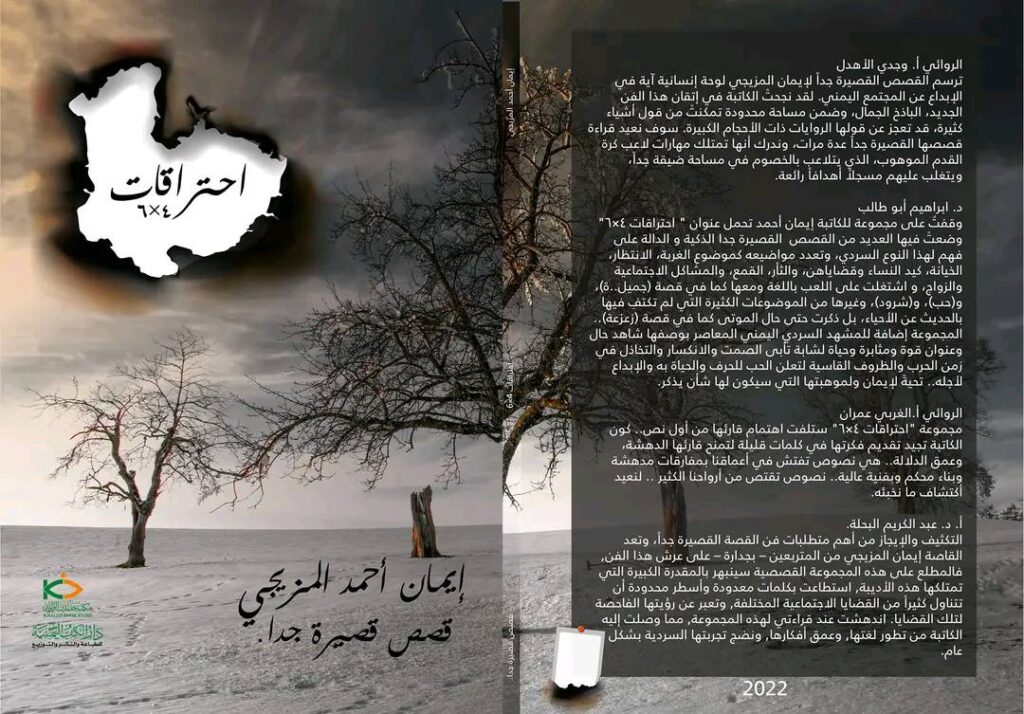A Critical Review on the short story “Memory” of Entesar Asseri
Entesar Asseri is widely considered one of Yemen’s most prominent contemporary female writers. In her short story “Memory”, Asseri uses Surrealist techniques to challenge normative gender roles and critique patriarchal power dynamics in Yemeni society. Through the unnamed male protagonist’s loss of memory and disintegration of identity, the story offers a vivid depiction of the inner turmoil experienced by individuals constrained by rigid social conventions. It also serves as an implicit condemnation of toxic masculinity and the oppression women face in a patriarchal culture.
The story opens by establishing the protagonist’s loss of memory as the catalyst for the ensuing chaos and crisis of identity. His “mind handed in its resignation” and memory went into “hiding”, leaving him desperately searching for a replacement. This opening establishes a sense of confusion and instability, as the foundations of rational thought and personal history have been stripped away. By framing memory itself as something that can abandon one, Asseri highlights how identity is precarious and dependent on societal norms and expectations.
As the protagonist finds clues around his home but no definitive answers about who he is or his past, the descriptive details take on Surrealist qualities. Fragmented images like lipstick stains on the pillow or the neighbor singing provocatively through the window combine absurdity with psychological and sexual undertones. The disconnected vignettes reflect the inner turmoil of a man whose rational mind has deserted him. They also hint at repressed desires and urges normally kept hidden. By exposing such elements to bizarre twists of reality, Asseri uncouples them from their customary meanings and forces the reader to reexamine social conditioning.
When the protagonist finds a “small black object” that turns out to be a malfunctioning memory drive, it introduces technology into the story’s Surrealist landscape. The memory’s chaotic contents, showing an alluring woman in an orgy, reinforce how patriarchal conditioning reduces women to objects of male pleasure and property. This, coupled with the memory’s French perfume implying foreign decadence, constitutes the protagonist’s subconscious rebellion against the social codes that constrain him. His impulse to discard the memory in the end represents rejection of the toxic aspects of masculinity the memory represents.
The story builds to a climax with the protagonist venturing in public without any sense of identity, foreshadowing his inevitable downfall. His physical appearance increasingly deteriorates into grotesque caricatures as inner and outer become unmoored. This represents his alienation from a patriarchal order when unbound by its rigid rules defining gender roles and identities. The shopkeeper’s dramatic accusation that the protagonist murdered his neighbor after purchasing a new memory further heightens the story’s Surrealist mode, linking identity, memory, desire and their repression to violence against women.
Throughout, Asseri uses fragmented vignettes, Freudian symbols, and the disintegration of the rational self to powerfully address gender oppression in Yemen. The protagonist’s crisis, brought on by the loss of patriarchal conditioning encoded in his memory, serves as an implicit critique of toxic masculinity. Asseri suggests alternative ways of being are possible if individuals could free themselves from the constraints of a patriarchal social code. Ultimately, the story functions as a feminist parable, using Surrealist techniques to uncouple identity from rigid patriarchal norms and explore the inner discontents they create for both men and women.
In conclusion, Asseri’s short story “Memory” stands out as a work of feminist Literary Surrealism. Through an unnamed male protagonist’s descent into chaos after losing his memory, it offers a vivid psychological portrayal of the inner conflicts that arise when individuals are constrained by patriarchal social conditioning. By framing memory and identity as constructs dependent on wider patriarchal norms, Asseri challenges their validity and naturalness. She presents a compelling critique of toxic masculinity and the gender oppression it enables, while imaginatively exploring the psychological toll conformity to patriarchal rules exacts. The story constitutes a powerful text within Yemeni and wider Arabic feminist literature.
I Named Her, Fatima – a novel written by Mayasa Al-Nakhlani – trans. Hatem Al-Shamea

